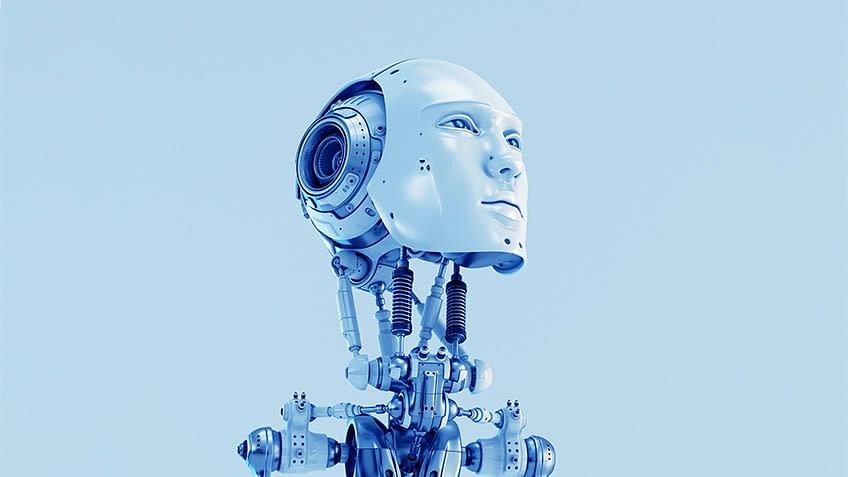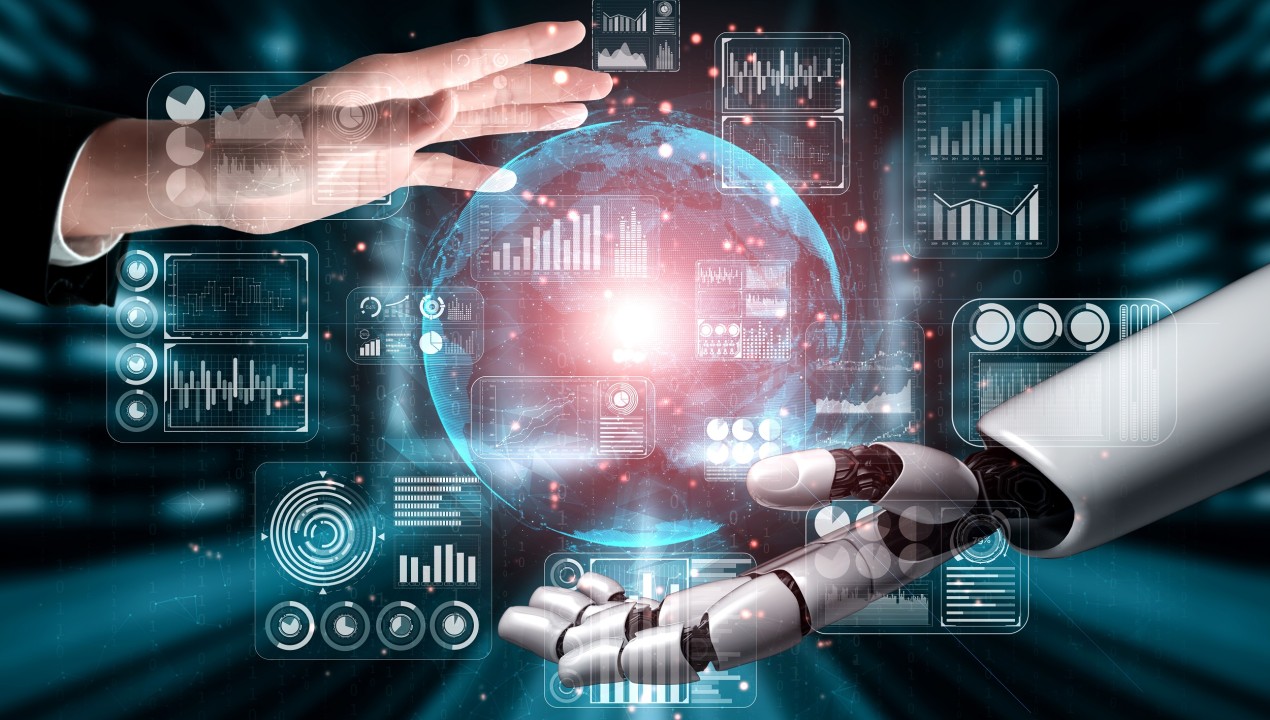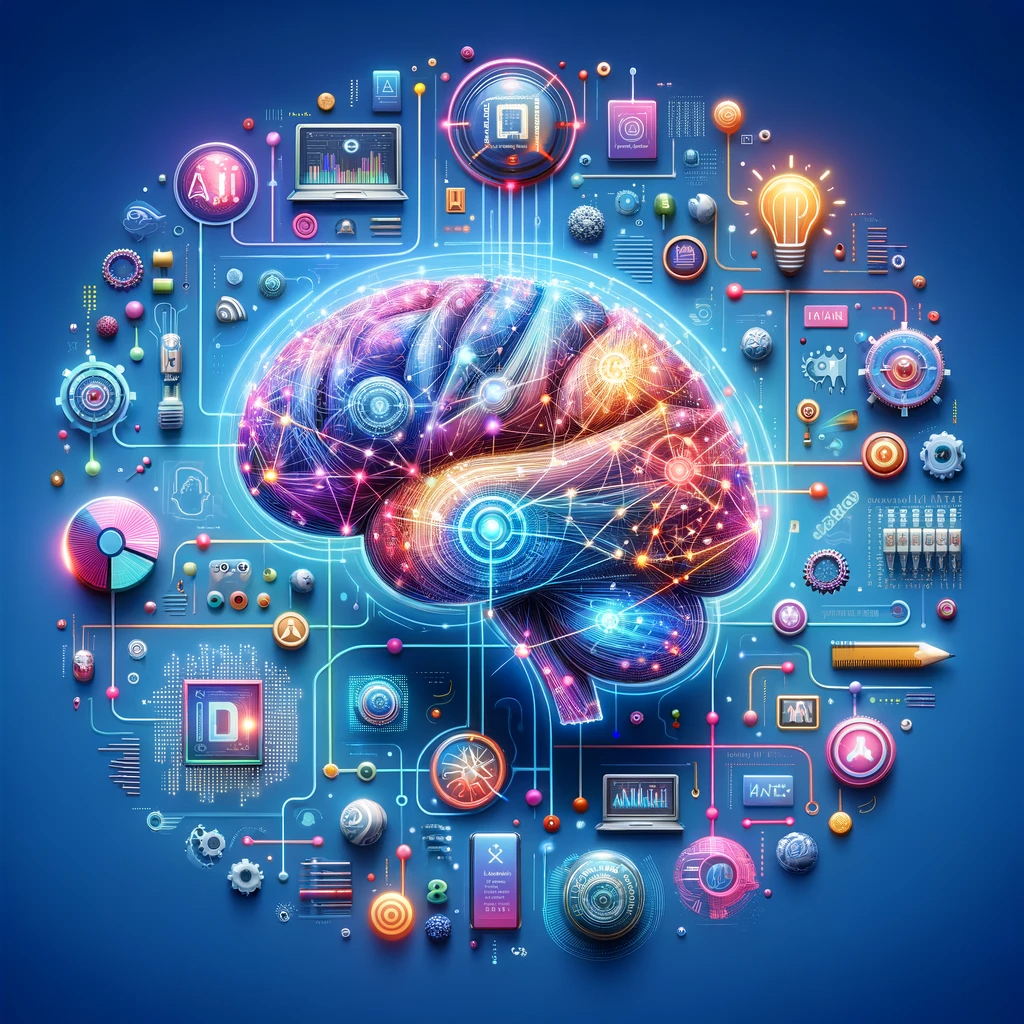The Future of Work: How AI and Automation Will Shape Tomorrow's Jobs

Artificial Intelligence (AI) and automation are
transforming industries at an unprecedented pace, creating both
excitement and uncertainty about the future of work. As these technologies
continue to advance, they are reshaping the global workforce by automating
routine tasks, enhancing human capabilities, and even creating new jobs. But
with these innovations come questions: How will AI and automation impact
employment? Which jobs are at risk, and which ones will thrive? And how can
workers prepare for this rapidly changing landscape?
In this blog, we’ll explore how AI and
automation are shaping the future of work, the opportunities they bring,
the challenges they pose, and how individuals and businesses can adapt to
this evolving environment.
1. The Rise of AI and
Automation in the Workplace
Over the past decade, AI and automation have become
increasingly integrated into various sectors, from manufacturing and healthcare
to finance and customer service. These technologies are capable of performing
tasks that were once considered the exclusive domain of humans—analyzing large
datasets, recognizing patterns, diagnosing diseases, and even making decisions.
AI and automation can be categorized into two
types:
- Process Automation: This
involves automating repetitive, rule-based tasks, such as data entry,
invoicing, or customer support through chatbots. Process automation is already
widely used in industries like finance, retail, and logistics.
- Cognitive Automation: More
advanced, this form of AI mimics human cognitive abilities like learning,
reasoning, and problem-solving. It powers innovations such as self-driving
cars, personalized recommendations, and AI-driven diagnostics in
healthcare.
As AI systems improve, their ability to handle
more complex tasks continues to grow. While this leads to greater
efficiency and productivity, it also raises concerns about the displacement of
certain jobs.
2. Job Displacement vs.
Job Creation: A Dual Narrative
One of the most significant fears surrounding AI
and automation is job displacement. Many traditional roles, especially those
involving repetitive tasks, are at risk of being automated. For instance,
factory jobs that once required manual labor are now handled by robots, and
tasks like data processing or customer support can be performed by AI-driven
software.
Jobs Most Vulnerable to
Automation:

- Manufacturing and Assembly Line Jobs: Automation
has already revolutionized industries such as automotive production, where
robots handle tasks like welding and assembly.
- Routine Administrative Work: Jobs
involving data entry, bookkeeping, and routine analysis are being
increasingly automated by software solutions.
- Customer Service Roles: AI-powered
chatbots and virtual assistants are taking over roles in customer support,
reducing the need for human intervention.
However, while AI and automation may eliminate
some jobs, they also create new opportunities. As routine tasks become
automated, the demand for roles that require human creativity, emotional
intelligence, and complex problem-solving increases. AI also leads to the
creation of entirely new industries, such as AI development, data science,
and robotic engineering, generating a range of new jobs.
Jobs Thriving in the Age
of AI:
- Data Scientists and AI Specialists: The
rise of AI has created a surge in demand for professionals who can
develop, maintain, and improve AI systems.
- Healthcare and Medical Roles: While
AI can assist in diagnostics, the demand for human caregivers, nurses, and
doctors is growing, especially as populations age.
- Creative Roles: Jobs
that involve creative thinking, such as marketing, content creation, and
design, are less likely to be automated.
- AI Ethics and Regulation Specialists: As AI
becomes more pervasive, there is a growing need for experts who can ensure
ethical use and regulatory compliance in AI technologies.
3. The Role of AI in
Augmenting Human Capabilities
AI is not just about replacing human jobs; it also
enhances human capabilities, enabling workers to perform tasks more efficiently
and effectively. This concept of "AI augmentation" refers
to the collaboration between humans and machines, where AI handles routine
tasks, allowing humans to focus on higher-level work.
How AI is Augmenting
Human Work:
- Enhanced Decision-Making: AI
systems can analyze vast amounts of data and provide insights that help
humans make better-informed decisions. For example, in finance, AI can
identify trends and predict market movements, giving analysts a
competitive edge.
- Increased Productivity: In
sectors like logistics, AI-driven systems can optimize supply chains,
automate warehouse operations, and predict demand, leading to more
efficient workflows and reduced human error.
- Improved Healthcare Outcomes: AI is
revolutionizing healthcare by assisting doctors in diagnosing diseases and
recommending personalized treatment plans. AI can analyse medical images
faster and more accurately than humans, improving patient care.
AI augmentation is especially valuable in
professions that require emotional intelligence, creativity, or
interpersonal skills—areas where human judgment and empathy are
irreplaceable.
4. The Skills of
Tomorrow: Preparing for the AI-Driven Economy
As AI and automation reshape the workforce, the skills required for success are evolving. To thrive in the future of work, individuals must adapt by acquiring new competencies that align with the demands of an AI-driven economy.

Key Skills for the
Future:
- Digital Literacy and AI Understanding: A
fundamental understanding of AI, machine learning, and data analytics will
become essential for most industries. Workers will need to be comfortable
using AI-powered tools to stay competitive.
- Problem-Solving and Critical Thinking: As AI
handles routine tasks, human workers will need to excel in higher-order
thinking, solving complex problems, and developing creative solutions.
- Emotional Intelligence and Interpersonal Skills: Jobs
that require empathy, leadership, and communication are less likely to be
automated, making these skills increasingly valuable in industries like
healthcare, education, and management.
- Adaptability and Lifelong Learning: The
fast-paced evolution of technology means that workers must commit to
continuous learning and be willing to reskill and upskill throughout their
careers.
Many governments, educational institutions, and
organizations are recognizing the need to invest in reskilling initiatives. Online platforms, boot
camps, and AI-focused programs are becoming more accessible, offering workers
the opportunity to gain the skills needed for the jobs of tomorrow.
5. The Challenges and
Ethical Considerations of AI in the Workplace
While the benefits of AI and automation are
evident, their widespread adoption raises several challenges and ethical
considerations that must be addressed.
Ethical Challenges:
- Bias in AI: AI systems are
trained on data, and if that data is biased, the AI can make biased
decisions, leading to issues of fairness and discrimination in areas like
hiring, lending, and law enforcement.
- Job Inequality: Automation
may disproportionately affect certain segments of the workforce,
particularly low-skill workers, leading to increased inequality and
unemployment.
- Privacy and Security Concerns: As AI
systems collect and process vast amounts of data, ensuring the privacy
and security of this information becomes critical.
To address these challenges, companies,
governments, and regulatory bodies must collaborate to create ethical
guidelines, policies, and frameworks that ensure the responsible use of AI.
This includes developing transparent AI systems, addressing job displacement
through social safety nets, and ensuring data privacy.
6. The Future of Jobs:
What to Expect in the Next Decade
As AI and automation continue to evolve, the
future of work will look very different from today. While some jobs may be
replaced by machines, many new opportunities will emerge in fields that don’t
yet exist. The key to navigating this transition lies in adaptability,
continuous learning, and the ability to work alongside AI technologies.
Predictions for the
Future of Work:
- Hybrid Workforces: Many
industries will adopt hybrid workforces, where humans and AI systems
collaborate, enhancing efficiency and productivity.
- Rise of the Gig Economy: As
automation takes over more routine tasks, the gig economy may grow, with
workers providing on-demand, specialized services that require human
ingenuity.
- New
Industries and Roles: The AI revolution will give rise to
entirely new industries focused on AI development, ethics, and
implementation, creating jobs that we can’t fully predict today.

Conclusion
AI and automation
are already transforming the way we work, bringing both challenges and
opportunities. While certain jobs
may be at risk, new roles are emerging that demand skills in critical thinking,
creativity, and AI literacy. By embracing change, continuously learning, and
developing the skills required in an AI-driven economy, workers can thrive in
the future of work.
The future of work is not about machines replacing humans, but rather humans and AI working together to build a more efficient, innovative, and inclusive workforce.